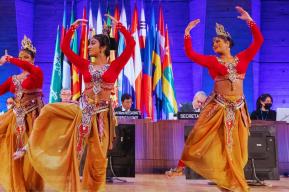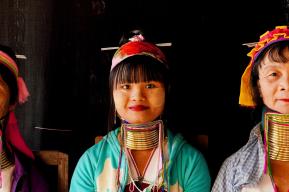News
Regional Perspectives | Africa

The African Development Bank Board approved a new Gender Strategy for 2021-2025 "Investing in Africa's women to accelerate inclusive growth”. The strategy aims to overcome obstacles to women’s inclusive economic and social development in Africa through enlarging their access to finance and markets, jobs and skills development, and social services. The Africa region has the highest percentage of women entrepreneurs in the world, yet gender inequality in sub-Saharan Africa alone costs the labour market US$95 million each year. The current COVID-19 pandemic has forced 80% of women-owned small and medium enterprises to temporarily or permanently shut down, as reported in a recent study by the African Development Bank, UN Women and Impact Her. The new strategy injects fresh promise for equitable development in the region, and will draw on the Bank’s Affirmative Finance Action for Women in Africa (AFAWA) initiative as a means of unlocking some US$5 billion over the next five years to support women’s small and medium enterprises.




